|
We gathered around a table in the upstairs part of Grit Coffee. Though there weren't very many of us, the intimate setting made it easier to relax and enjoy the spoken word poet Andrew Lustig. He performed a few poems expressing his feelings for Israel: love, reverence, fear, anxiety. After sharing one of his poems, called "I Am," he encouraged us to write for a few minutes about our feelings for Israel with the goal of imitating his style of poetry. We all wrote a few lines about our own experiences, and then took turns reading a line at a time, forming a new poem that represented our collective view of Israel. We discussed a little bit about our own experiences and tried to determine why we felt the way we did about Israel. Though we all have different opinions of Israel, of its politics and conflicts and leaders, everyone present was willing to be open and to share views with the rest of the group. All in all, it was a very meaningful and inspirational evening of poetry, creativity, and camaraderie.
--Wittney Skigen Class of 2019 I was really looking forward to this event because I am very passionate about Israel, and I thought this would be a good outlet for those emotions I have been experiencing over the last month or so with everything that has been happening in Israel. When I walked into Grit Coffee and saw the poet, I realized that he, Andrew Lustig, is the same person whose video I watched on YouTube all those years ago that gave me goosebumps and put tears in my eyes. After introductions, he began to recite some of his work for us. It was all so moving, so emotional, and hit so close to home for me. Lustig talked about different experiences in Israel, different opinions he has had himself and has heard from others, and his overall thoughts about the constant strife in the Middle East. I have always admired poets; the way they string words together to make them sound like music, the way they recite their work so passionately and effortlessly at the same time, the way they truly make words into art and have such fervent meaning behind them. It was really amazing hearing Lustig's pieces and getting to discuss them with him in such a private setting. Then we went on to an exercise where we all wrote anything on our minds about Israel; he encouraged us to write in a repetitive, one line fashion, and said we would be sharing afterwards. We went on to do an exercise where we strung all of our lines together to create one cohesive poem. I really enjoyed this event a lot. It was a great break from the world of studying and classes and gave us all an hour or so to talk about something that truly matters to us: Israel. --Talia Sion Class of 2018 While talking with students, Pinkas covered plenty of the areas he has experience in-- including motivating the populous to accept environmentally motivated initiatives, working within a governmental structure to bring big picture issues to the forefront, and utilizing divesture to achieve environmental goals. The topics were applicable not only to Israel, but also to America and the entire world. The opportunity to hear from the man voted one of Israel's 100 Most Influential People on his work and passion was truly remarkable.
-- Otto Warmbier Class of 2017
The retreat focused on telling our individual Israel histories, our stories. Each participant had the opportunity to share his or her experiences regarding Israel, whether it was anecdotes, personal opinions or political views. All of this occurred in a respectful space where all opinions were tolerated. This is where all of our personal views met each other and helped morph and form one another. Instead of the typical heated debates, we learned through sharing our personal, unique opinions. We learned that we were not expected to blindly love Israel, but instead we could “hug and wrestle” with Israel. In fact, the reason why we wrestle with Israel is because we love it.
The retreat also taught us how to engage in productive conversations back on grounds. The leaders gave us the tools to be respectful yet impactful when discussing Israel with others on Grounds. We considered how can we portray our “hug and wrestle” stories to other UVa students, faculty and administrators? How can we tell people that we love something, yet struggle with it as well? How can we tell them that the reason we struggle with something is because we love it? And, how can we tell people that, although something may be flawed, it still deserves to BE? This is what the Hillel Israel Retreat of 2015 taught me to do, or at least helped me figure out the steps of how to do it. Back on grounds I now wonder, how will we exhibit what we learned at the retreat? We will create constructive dialogue and move carefully and productively. The best way to continue to learn about Israel is to keep on telling our “hug and wrestle” stories. -Jay Epstein WaJew Class of 2017
From Israeli-Americans like myself to those of us who have just begun learning about the conflict, everyone who came out to D.C. was able to personally engage with Israel in new ways. I found it empowering to listen to some of the people directly involved in the peace process. I heard politicians speaking candidly in small settings about their obstacles to progress from their own perspectives. Hearing from Israeli and Palestinian parents who have lost their children to the violence of conflict also brought home the seriousness and urgency of our work.
The speakers, panels, and conversations from our two days at the conference also gave us a first-hand understanding of how diverse the pro-Peace camp really is. As expected, I met a lot of Jews my age that grew up caring and learning about Israel through family, school, and visits, but I was surprised to also see so many Christian, Muslim, and Latino students who had learned about the conflict more recently, as well. One student I have come to know personally is a first generation Pakistani-American from Maryland who first studied the conflict in high school. She has since studied abroad in Jerusalem, traveled throughout Israel and the West Bank, and become a leader on J Street U’s National Student Board. At the conference she gave an impassioned speech about urging attendees to take ownership of our future by working towards a two-state solution. Bringing back my experiences at the conference to grounds, I hope that J Street UVa can play a role in fostering constructive spaces for engaging with Israel. We want to give students from various backgrounds the chance to grapple with the complex moral issues and political realities in Israel. It is my hope that the Jewish, Palestinian, and the broader UVa community will join our efforts to combat apathy and promote productive action while maintaining a respectful environment. - Ori Shimony
Before the speeches and activities began, we sat down for lunch, and I was able to meet a few of the Israelis. This winter I traveled to Israel on Birthright with Hillel at UVa, and we were able to bond about the experience- we even had mutual friends on Facebook (insert Jewish geography joke)! I’ve always been impressed with the way Israelis carry themselves, specifically in their levels of maturity. I spoke with one of the Israelis named Or, who is also a brother of AEPi at IDC Herzliya. We came to the conclusion that because of the lifestyle they live in Israel – with the army and the type of people – there is an emphasis on independence and early learning. He said that in the army you learn things that cannot be taught in school like meaningful lessons in accountability and responsibility.
Later, I sat down with two Israelis, Dor and Avi, for an activity that involved depicting America or Israel through the others’ eyes. Dor and Avi spoke about what they thought America meant to them, their parents, their friends and to Americans, and I did the same for Israel. They shared the typical stereotypes of college parties and big business, but they also pointed out some more interesting complexities of American culture. Seeing that they do not see every piece of American news, they focused on the bigger, controversial stories as thematic of American culture. Things like race, the two party system and safety. I went on to describe my sentiments toward Israel and how much it means to my family living in America and in Israel. Dor, Avi and I really bonded over our shared passion for Israel, and it made me remember the great times I had this winter on Birthright. Overall, I was so excited to help host this group of Israelis and I hope they come back soon! Zach Gelfand Class of 2017 |
The Brody Jewish Center, Hillel at the University of Virginia, is the focal point in a renaissance of Jewish life for the 1,000 Jewish students on Grounds. Archives
September 2021
Categories
All
|
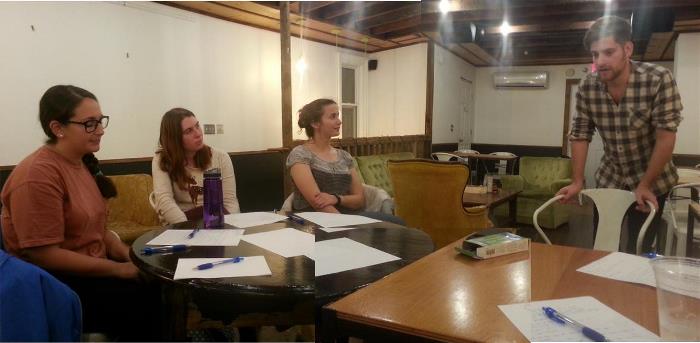
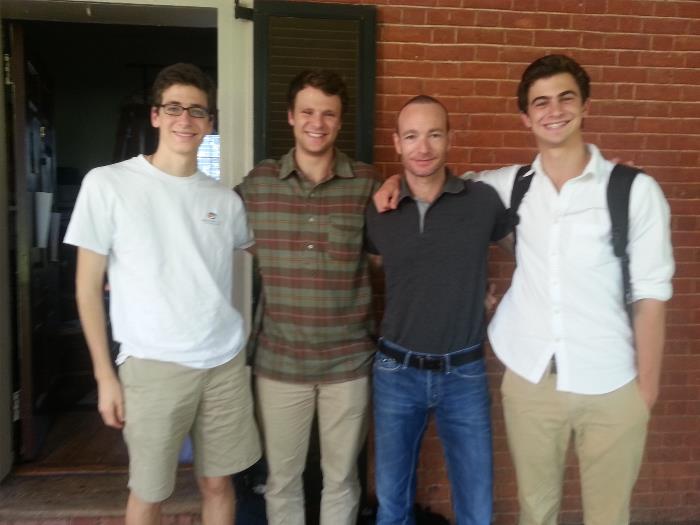
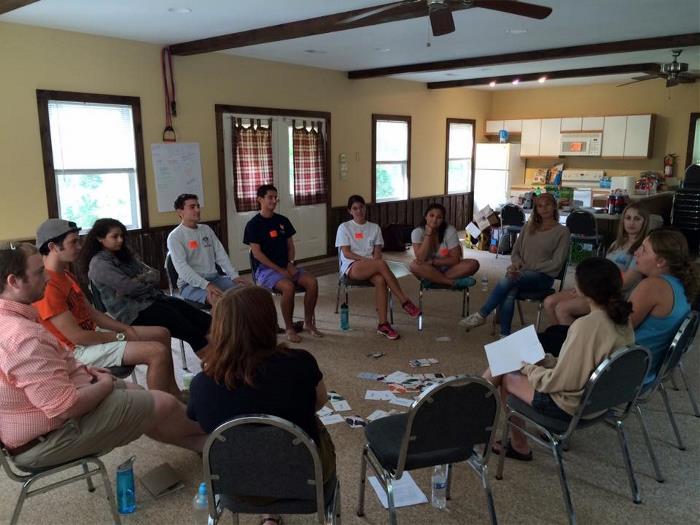
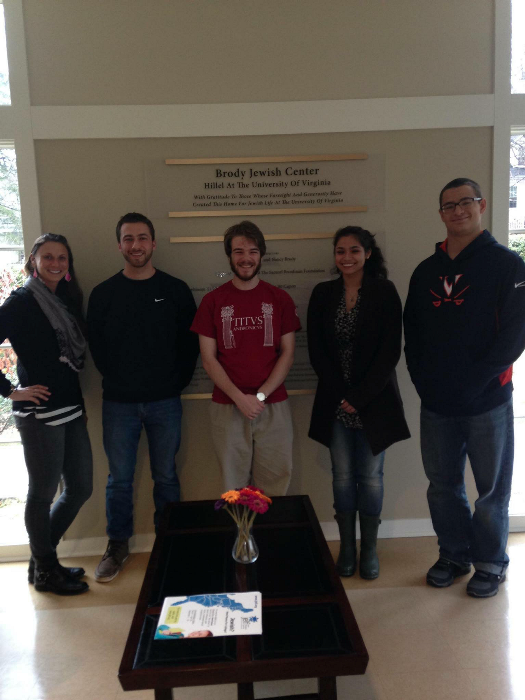
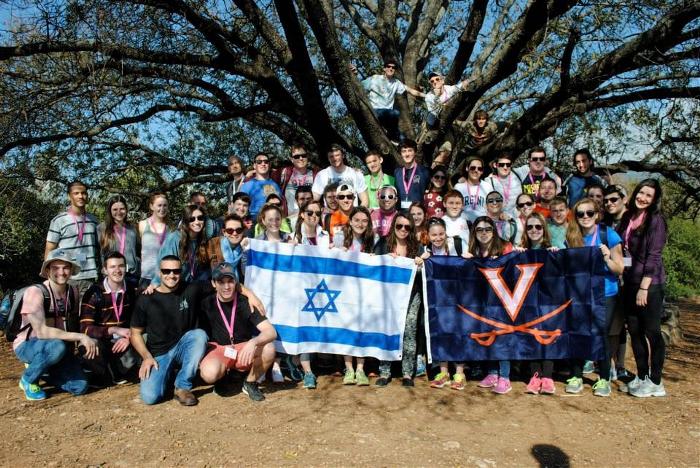
 RSS Feed
RSS Feed